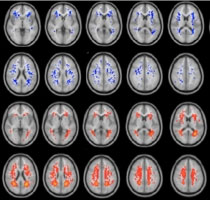Multiple emotions
| 5 August, 2011 | Cathryn Denney |
|

|
The ability to pick up on the non-verbal emotional cues a person gives off is crucial in everyday life; knowing from the look on your boss’s face that today is just not the day to ask for that pay rise could save you an unwanted argument. This is a task that can be tricky at the best of times; however, previous studies have suggested that for sufferers of multiple sclerosis (MS), actual deficits in recognition of emotional facial expressions may exist.
“The ability to recognize emotional facial expressions employs several parallel encoding processes” explains Margit Jehna of the University of Graz who, along with colleagues, recently presented work studying the functional differences in emotion recognition between healthy controls and sufferers of MS.
Along with behavioural and clinical assesements, patients were presented with a series of images including neutral faces, emotional (scrambled, angry, disgusted, fearful) faces and houses, whilst undergoing functional magnetic resonance imaging (fMRI) and diffusion tensor imaging. The researchers hypothesized that MS-specific structural cerebral alterations possibly affect the recognition of emotional facial expressions.
The results, recently presented in a poster at the European Neurological Society (ENS) 2011 meeting, showed that although there may be no differences in behavioral performance between MS patients and healthy controls, MS patients had relative excess activations in distinct parts of the brain for different emotions as shown by structural analysis: “it can be suggested that MS patients had to recruit additional brain regions to accurately process visual stimuli” Jehna explains.
Essentially, these changes could be described as a form of compensatory neural plasticity and Jehna highlights that such results may be the first indications that dysfunction in emotional recognition processes may occur later in disease if brain destruction could not be compensated anymore.
Jehna concludes that although it has been shown that cognitive, social and emotional problems in MS essentially affect the everyday life of patients, “we hope that this work could demonstrate the importance of social-emotional aspects of the disease.”
Whilst you’re here, take a look at more of the work presented at ENS 2011.

|
